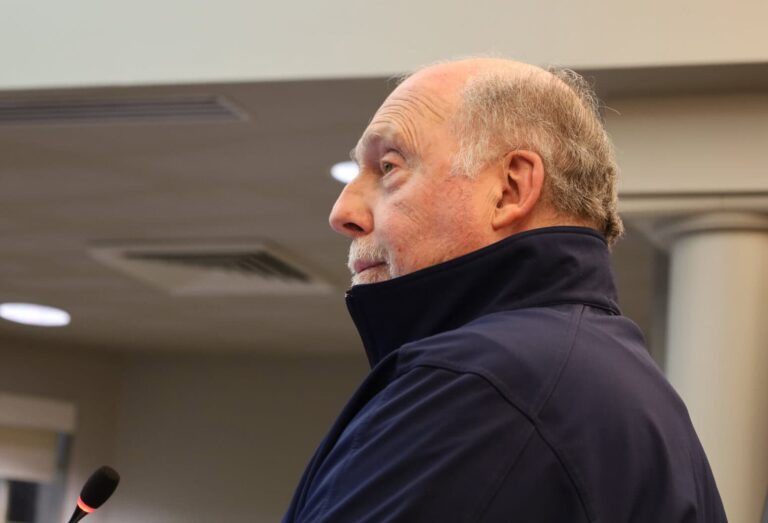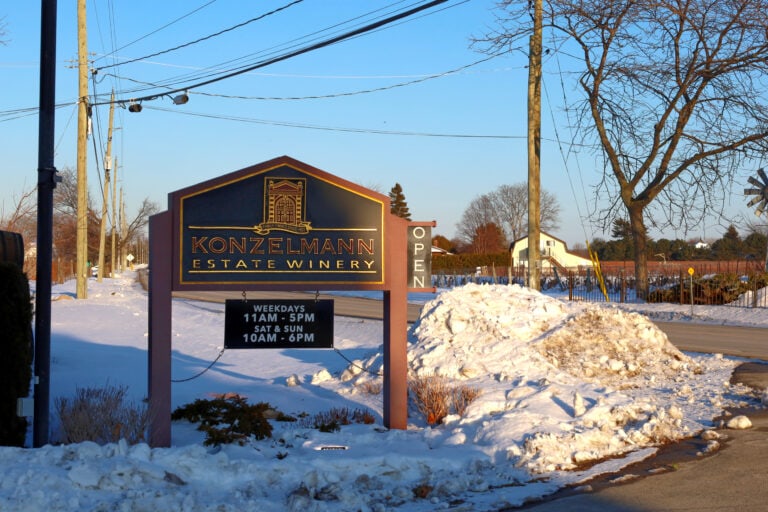Developer Hummel Properties Inc. is suing the Town of Niagara-on-the-Lake for damages over an interim control bylaw passed just days after council was sworn in on Dec. 3, 2018.
Although the allegations have not yet been proven in court, documents filed by Hummel in court allege a “scheme” by Lord Mayor Betty Disero and “at least one” other councillor-elect was used to enact the bylaw — which halted all development in Old Town for a year.
The legal brief, known as a factum, obtained by The Lake Report alleges Hummel Properties suffered damages as a result of the development freeze bylaw. The amount of the damages in the March 2 submission is unspecified.
It claims the statute was adopted illegally and was used to target a specific developer, Benny Marotta of Solmar Development Corp.
The suit alleges Disero and council were “secretly working to pursue interim control and had already arranged the special meeting of council for Dec. 5.”
The lawsuit suggests two “serious” issues with the Dec. 5 meeting — that there was no proper notice of the meeting given and that “the meeting was intentionally hidden from the public and the agenda was misleading” and that “council did not have all discussions with respect to an interim control bylaw in public.”
“The Dec. 5, 2018, special meeting was called in contravention of the town’s procedural bylaw. There was no notice. There was no emergency,” the filing says.
It also claims meetings to discuss the bylaw “took place outside of an open public meeting, in secrecy.”
As a result, the decision to pass the development freeze “was a fait accomplis long before the actual meeting.”
The town refused to comment on the lawsuit because it is before the courts, but noted “councillors may act within their capacity as a member of council only after they are officially appointed to that office and have taken their oath.”
Hummel says that because of the bylaw, his proposed development on Niagara Stone Road across from the Old Winery was put on hold and has been unable to proceed.
His suit alleges the company incurred costs and that the delay could result in changes to market conditions which could “affect the economic viability of the project.”
The lawsuit said the full costs and damages are still being quantified and asks the court to order a trial on the issue.
While the legal action claims council acted in “bad faith,” the document notes this is “not to imply or suggest any wrongdoing or personal advantage on the part of any of its members.”
However, it says, “council acted unreasonably and arbitrarily and without the general degree of fairness, openness and impartiality required of a municipal government.”
In the factum, the developer’s lawyers Thomas Richardson, Peter Mahoney and Sara Premi of Sullivan Mahoney in St. Catharines, call council’s actions “intentional and insidious.”
“The applicant, the development community and the public deserve much better from elected officials. The Town breached the open meeting requirements of the Municipal Act and acted contrary to the principles of fairness, transparency and accountability.”
Hummel is seeking a trial for financial damages associated with development freeze, which was extended for a year and then revoked in June 2020. He also wants the bylaw quashed and declared illegal.
Short notice for meeting
The factum claims Disero and “at least one” other councillor knew as early as Nov. 22, 2018 — almost two weeks before taking their oaths — that there would be a special meeting of council Dec. 5 to implement the bylaw. It alleges the mayor asked town staff to draft the interim control bylaw on Nov. 22, but to date it Dec. 5.
The lawsuit says the meeting was also not announced in advance as required under the town’s procedural bylaw. Notice of the meeting wasn’t published until Dec. 4, one day before the meeting, and that when it was published it was “cryptic and made no reference to interim control,” the suit says.
“The failure of council to comply with its procedural bylaw resulted in the public and stakeholders being unaware of the intention to hold a special meeting or any of the items that council intended to consider. No media were present at the meeting.”
The suit says council did not disclose the intended special meeting during the inaugural council meeting Dec. 3 either. It claims council “concealed the fact and led the public to believe that there would not be any other council business until the next regular meeting on Dec. 17.”
The Dec. 5 meeting was held at 8:30 a.m., not a typical time for council meetings, and just 37 hours after council was sworn in.
At the meeting, “council immediately went into an in-camera session to consider matters subject to solicitor/client privilege, including communications necessary for that purpose, specifically regarding properties on John and Charlotte streets, being the Randwood properties,” the document says.
The suit says the culmination of these alleged actions “offended the principles of transparency and accountability that must be held by elected representatives.”
“In their haste to target one developer, council moved from breaching procedural safeguards to substantive incompetence, enacting interim control bylaws which exceed the jurisdiction of (the Planning Act).”
The lawsuit suggests both the interim control bylaw and its extension should be quashed for illegality under the Municipal Act and because they were “enacted in bad faith.”
The lawsuit alleges on Nov. 22, two weeks before council was sworn in, that Disero informed the town’s director of planning, Craig Larmour, that council was considering the interim bylaw to prohibit development in Old Town.
Planning director testified
An affidavit by Larmour confirms he was asked to prepare the bylaw for the Dec. 5 meeting.
However, the factum argues there is “no record of any properly constituted meeting” where council considered the bylaw before Nov. 22.
Larmour testified in proceedings last August that Disero may have “met with the members of council individually or the council-elect” to consider the bylaw.
The factum claims that Disero had “no authority” to direct staff but did so and indicated the request came from council.
On Nov. 23, the town’s then-chief administrative officer Holly Dowd provided Larmour with a draft interim control bylaw for the special meeting on Dec. 5, advising, “at this time it is very confidential.”
On Nov. 30, Larmour sent the draft to Disero, and “anticipated” the bylaw would be passed Dec. 5.
The lawsuit alleges now-resigned Coun. Stuart McCormack prepared a resolution which he shared with Larmour on Nov. 30, 2018, provided under a “cryptic” email, “I gather you have been working on this. I thought I would share it with you.”
However, McCormack’s resolution was “out of sync” with the proposed bylaw because it “contemplated a different study and different interim control than the draft bylaw.”
The town’s justification for the bylaw, namely the prohibition of development until the official plan was in place, “does not constitute a study,” the factum alleges.
Hummel argues that since an interim control bylaw requires a study, Larmour “inserted a placeholder to give some semblance of meeting that requirement.”
The lawsuit said there was no staff recommendation or planning report to support the interim control bylaw and that, instead, Disero and council directed changes “on the spot” at the Dec. 5 meeting.
Larmour, in his affidavit, attributed the issues with the bylaw as “the hazard of creating this bylaw on the fly” and had not recommended it be approved, or a study to be undertaken.
“Council did not seek his position on the appropriateness of interim control. Had they done so, he would have recommended that there be additional review. (Larmour) did not understand council’s basis or the true concern,” the lawsuit says.
Hummel claims the interim control bylaw was directed specifically at developer Benny Marotta, who at the time had planned to build a hotel on the Rand Estate — a contentious project that shaped the 2018 election, during which residents elected an almost entirely new council.
One developer targeted
The factum makes several allegations in support of that claim, including a personal meeting between Disero and Hummel, during which the mayor allegedly said the interim control bylaw “wasn’t about you guys” and that “you all know why I am doing this.”
Larmour in his sworn affidavit also said the Rand development was on the mind of council.
“I can state that the Randwood development and the activity that occurred in the previous month or so was on the mind of council” and “I would say there was someone specific on her mind, she didn’t identify who it was … I would be making an assumption,” he says.
Email communication from Coun. Wendy Cheropita also suggests council was being directed to act against a specific developer.
When council voted on the bylaw, “it was the first order of business after the election. Councillors, including me, were unaware of the full extent of the consequences and validity of this move. We were all being guided to vote yes to protect the town from a specific developer,” Cheropita wrote.
The lawsuit alleges Disero gave “several assurances” to Hummel that the development freeze would be “short lived.” It said Hummel, along with other developers, relied on those assurances in not immediately challenging the bylaw.
However, contrary to those alleged promises, and against staff recommendations, the interim control bylaw was extended Nov. 11, 2019, for another year.
Larmour testified that staff made it clear the extension was not needed.
In April 2020, council moved an exemption process to the bylaw, which Hummel alleges had no planning justification other than “a late attempt to correct the improper interim control and extension.”
In June 2020, council repealed both bylaws.
The lawsuit acknowledges the Planning Act does not require the public to be given advance notice of a proposed interim control bylaw and there is no right to public participation in the process.
However, it does not “obviate” the requirement for proper notice of a public meeting under the Municipal Act, the suit says.
The lawsuit says the town has “given a revolving set of reasons for interim control.”
‘Not promoting public interest’
“Even (Larmour) has said he is unaware of the true basis. The town did not call evidence relating to the facts and impetus for interim control. The town has not provided any explanation for not doing so. This allows the court to draw a negative inference.”
In passing both the development freeze and the extension, “council was not promoting the public interest through proper planning,” the suit says.
“It clandestinely targeted one developer and schemed to hide its true purpose. It enacted a sweeping bylaw, one beyond its jurisdiction, which impacted many stakeholders and compromised the public interest.”










